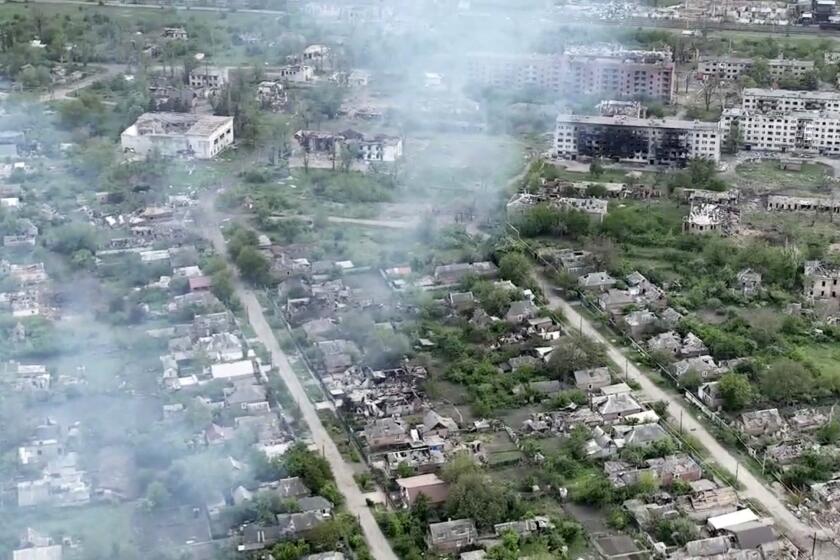‘Our girls are coming home’
The statement posted on the lauraandeuna.com website said it all: “Our girls are coming home . . . we are counting the seconds to hold Laura and Euna in our arms.”
In some circles the release of journalists Laura Ling and Euna Lee revolved around complex questions of nuclear security and global politics.
But to many in California, where the two women worked and lived with families who have been sick with worry, there was only joy -- along with a sliver of anxiety about the physical and emotional trauma inflicted by 4 1/2 months in North Korean detention.
“We have been praying for them and holding vigils for them and we are ecstatic,” said Jeff Cole, who belongs to the same church as Lee and her husband, Michael Saldate, and whose daughter plays with Lee’s 4-year-old girl, Hana.
“Elation . . . and relief,” said Gotham Chopra, a friend and former colleague of both Laura Ling and her sister Lisa Ling, in describing his reaction.
The women were arrested March 17 near the North Korean border with China while reporting a story on human trafficking. They were on assignment for San Francisco-based Current TV, a cable and satellite channel co-founded by former Vice President Al Gore that strives to produce documentaries on topics not covered elsewhere.
Laura Ling, 32, a vice president of Current TV’s Vanguard Journalism unit, was known for her adventurousness and commitment. She had previously worked in far-flung places such as the West Bank, Indonesia, Cuba and the Philippines.
Lee, 36, a film editor who along with Ling was based in Los Angeles, had never before traveled outside the country for work. Raised in South Korea, she is dedicated to her daughter and to her husband, an actor, colleagues and friends said.
In June, the women were sentenced to 12 years of hard labor. Given the notoriously harsh conditions in many North Korean prisons, some called it the equivalent of a death sentence.
As they waited to see whether U.S. officials would be able to negotiate the women’s release, friends and family tried to galvanize support for the pair through candlelight vigils, Facebook groups, blogs, and television and newspaper interviews.
In an interview with The Times, Lisa Ling described the long months of trying to remain calm while the diplomacy between Washington and Pyongyang ran its course.
“We worked very closely with the State Department,” she said. “They became our extended family.”
On Tuesday, the extended families of both journalists gathered in Los Angeles for lunch and then a bout of TV watching, anxiously waiting for word of former President Clinton’s success.
Ling said she received an e-mail from a journalist close to the negotiations. Within minutes, the news was on CNN: The women had been released.
The news was an emotional breakthrough for the families, who had to walk a tightrope of hope and reality. For the first weeks of the journalists’ captivity, Ling said, the families stayed quiet.
“We kept them abreast of what we were going to do,” she said of State Department officials. “But given the sensitivity we had been quiet and tried to let diplomacy run its course.”
So the initial strategy was to lie low -- until a few weeks before the two journalists went on trial, when Ling said she received a surprise call from her sister in Pyongyang.
“One night she called unexpectedly and I told her that we’d been quiet and waiting for the diplomats,” Ling recalled. “She said it had been too quiet. So we began pushing harder for a diplomatic resolution.”
Saldate and others pointed to the cost to Lee’s daughter. “Hana misses her mom desperately and does not understand why she has not returned from her business trip,” one Web post said. “At least once a day, she breaks down crying for her mommy.”
The former president and the two journalists boarded a U.S.-bound plane Tuesday and were expected to arrive in Los Angeles after midnight.
--
john.glionna@latimes.com
Times staff writers Raja Abdulrahim and Julie Anne Strack contributed to this report.
More to Read
Start your day right
Sign up for Essential California for news, features and recommendations from the L.A. Times and beyond in your inbox six days a week.
You may occasionally receive promotional content from the Los Angeles Times.







